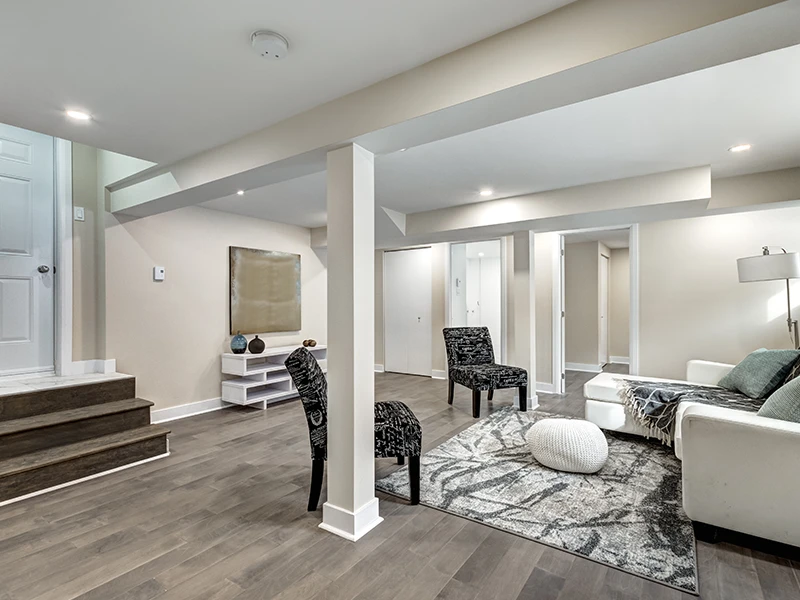Features and Benefits of Basement Flooring
Depending on the usage, you can opt for different kinds of flooring for the basement. Some of the options with their features and benefits are –
Fully waterproof planks in different colors and textures that can handle heavy weight and last long.
Real wood floor with additional waterproofing using laminate. It is great for applications where the aesthetics of wood flooring is of priority.
Hard, waterproof, and affordable flooring that is extremely easy to install in high-traffic areas.
It is great when you need some walking comfort with soundproofing and heat insulation. It is available in waterproof versions and may be great for basement music studios or home theaters. Basement flooring is sustainable and feels warm under the feet.
This option is good for specialized usages such as an art studio, yoga room, or a reading room where you want comfort with plush aesthetics. Carpet floors are not advisable for applications where you use heavy items.
